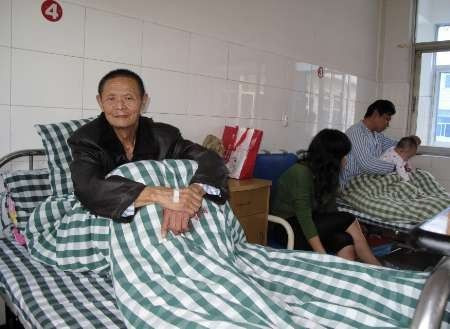China to expand health coverage to urban population

China aims to expand its medical coverage to include 90 percent of its urban population by the end of 2011, China's State Council, the cabinet, said on Thursday, in an effort to strengthen the country's weak social safety net.
China will raise the level of subsidies for citizens on the country's two health insurance programs -- an existing one for urban workers and a separate rural cooperative medical insurance scheme -- to 200 yuan ($30.36) per person, from 120 yuan now, the State Council said in a statement on the central government's website (www.gov.cn).
China wants to ensure basic medical insurance coverage for both urban and rural residents and significantly increase the level of protection, the statement said.
Beijing aims to complete landmark healthcare reforms by 2020 to ensure safe and affordable medical coverage for more than 1 billion Chinese, and plans to spend 850 billion yuan ($125 billion) on the initial stage to 2011.
With some hospitals charging exorbitantly for medical care and often demanding cash up front before providing treatment, basic medical care is currently beyond the reach of many ordinary Chinese, especially for the nation's migrant workers.
That has prompted many people to save a greater chunk of their disposable income rather than spend it, which economists say is at the heart of the economic imbalance in the world's second-largest economy.
Beijing's healthcare reforms are key to helping China boost the contribution domestic consumption makes to its overall GDP and counter its current over-reliance on exports and investment.
China aims to make medicines sold in drug stores more affordable and build 1,000 hospitals in townships and more than 13,000 clinics in villages, the statement said.
China's top political leaders, President Hu Jintao and Premier Wen Jiabao, have made narrowing the chasm between the urban rich and rural poor a priority that they hope will ultimately define their political legacies. ($1=6.588 Yuan)
© Copyright Thomson Reuters {{Year}}. All rights reserved.





















